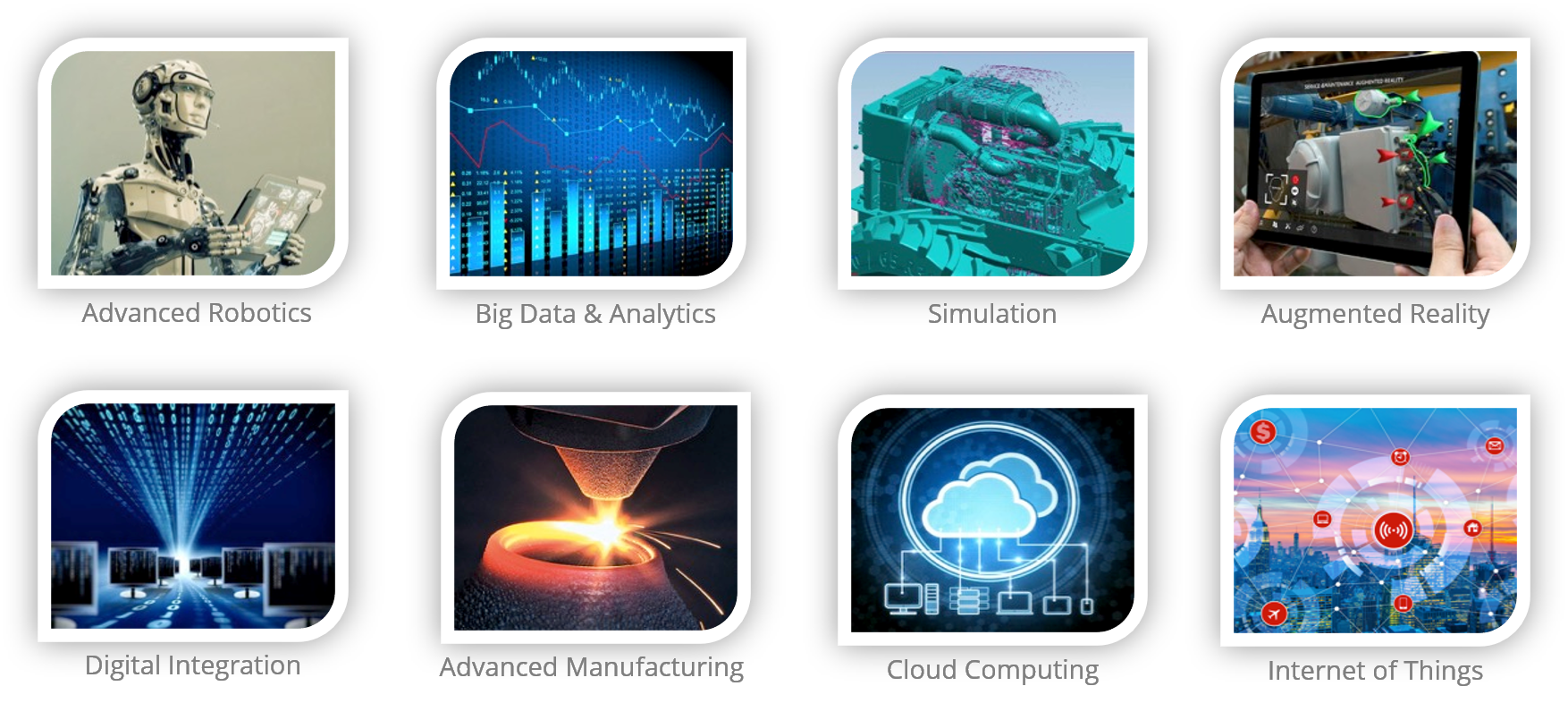The 4th Industrial Revolution Reframed

I am old enough to remember an incredibly forward-thinking Constitution that finally focussed on its citizens as a fundamental precept, an outcomes based-education vision hoping to rescue the next generation of South African children from a Christian-nationalist education system that was geared at creating a subservient and docile generation, the implementation of Broad-based Black Economic Empowerment as our panacea to redress the systemic suppression and economic control of the majority of the population and, the list goes on. Distinctly progressive, and absolutely needed. Our intentions and aspirations, since Madiba was elected, beyond question.
My experience, however, is one of ambivalence. Not because of missed goals, or failed execution, or even rogue and corrupt custodians, but rather because we fell into the trap of sidestepping the pragmatism of acknowledging the lag of our structural reality and accepting the false equivalence streamed to us on a daily basis through social media. More now than ever, it is easy to subliminally accept the reality being presented to us as simply some philosophical conundrum to be resolved without appreciating that our real-world context is nowhere near our understanding of it.
The one big blessing for us in developing world environments is that we did start on a relatively level playing field with the rest of the world in terms of the internet of things (IoT). We get this stuff. We understand the complexities and the current limits. Some of our early adopters have even gone on to develop complex, global-impacting solutions like Ubuntu, an open-source Linux operating system that helps connect everything from drones to thermostats, to the internet as well as online banking solutions like X.com (i.e., PayPal), etc. So, hopefully the point is made. When we as South Africans start on a level playing field, often, we lead the global agenda in innovation.
However, consider this. Both Mark Shuttleworth and Elon Musk’s brilliance and contribution is now predominantly the currency of everyone outside Africa. Not because we did not get it. Or, because we were incapable. But, because our reality on the ground is incomprehensibly so far behind our innovation potential. If all things were equal, we would have been launching rockets from Port Elizabeth and proudly serving the globe with our own IP and technology from South Africa’s own “Silicone Valley” in Gauteng.
The cart before the horse?
With every recent tweet, post, article, and presentation on 4IR I wonder whether we’re again going through the motion of buying into a progressive agenda without fully appreciating what it means in practice and, more importantly, understanding our existing limitations.
While many folks have been positioning the concept of 4IR in industry, education, HR, and society as simply the impact of technology on our lives, the reality is that 4IR is more about INTEGRATION. How pervasive and interrelated everything is becoming. This is not novel. It has happened at every technological milestone. It’s a timeless reality expressed as far back as Democratus when he proposed the idea of the atomic structure of things – that universal connection of phenomena and the principle of the material unity of the world. This timeless construct of the interconnectedness of things is now crystallising as something new and almost magical – the 4IR thing.

For a moment, let’s put aside all the novelty and excitement around this “new” thing and start asking some “real” questions. What does integration mean for our South African society? Where are we structurally and technically positioned to bring together this Internet of Things (IoT)? Are we still positioned as consumers and suppliers of commodities as opposed to technology and IP creators? Are we still held captive by foreign technology companies that are driving their IP and technology products and insidiously setting their agenda as our own? These are some of the questions we need to be asking. Not simply confounding the discussion by stating the obvious – that we’re in an era where technology is pervasive. We’ve been linking our technology since the very first squealing modem was attached to that desktop and analogue phone. So, if it’s more about the pervasiveness of the connectivity, then it has to be about the readiness of the environment above everything else.
Don’t throw the baby out with the bathwater
Our 4IR discussion needs to be reframed. We have some very real legacy issues that need to be addressed. Conventional wisdom has it that our brightest and smartest will be prodded and poked to initiate the collective thinking and discussions around what’s trending globally and even be formally co-opted to become industry “experts”. Government will then, typically, be co-opted as the social conscience and as a primer to facilitate access to our markets. Then, enter the global players waiting in the wings with their size 18 footprints, bottomless budgets, and bought networks. All the signs point to the fact that this is what we’re currently baking into our 4IR future.
We possibly need to start discussing how to neutralise the dominance of the foreign technology colonisers as opposed to priming the environment for their technologies. As we push to catch up, we have to approach this on two fronts. Firstly, this will need a level of pragmatism, organisational political will, as well as a home-grown, low code, software platform that can be layered on top of all the costly, entrenched, legacy systems to allow local entrepreneurs the opportunity to access and create new software solutions and applications. Secondly, this needs to be able to be executed with minimal upskilling and the least barriers to entry. Achieving this will go a long way to enabling South Africans to prepare and drive their own 4IR agenda.

This cannot be left up to a natural evolution of programming and manufacturing expertise. We must short-circuit the process. The conventional idea of driving a technological focus from primary school through to university level is misplaced. We have an existing crop of high potential, “unskilled” tech-savvy entrepreneurs that may have missed the formal C++ and Python boat but with minimal support, and low code programming solutions like iProof, will in no time be generating software and interfaces that could drive our technological agenda across Africa and the globe. We must dispel this convenient idea of a systemic, evolutionary process, as the solution. We do not have the luxury of waiting a generation or two to get ahead of the game. By the time that happens 5G will be driving the next best thing while we will still be referred to as a developing country and a commodity resource for those forcing their technology and IP down our throats.

As the rest of the “developed” world comfortably frames and pitches the fourth industrial revolution as though it is a natural progression, we in South Africa are still captive to the restraints of power outages, costly and unstable high-speed data services, non-existent universal coverage and access and even 1IR inadequacies like road and rail network infrastructure limitations.
Disruption for us in South Africa may have to mean something less fancy than seminars and workshops around artificial intelligence, augmented reality, 3D printing and cloud computing. We may have to start out firstly figuring out how to address:
- our existing programming and technological resource problem
- the way we currently supply electricity and services to our communities
- the cost associated with gaining access to the Internet
- the way we artificially commoditise access in the form of “data”
- the incestuous self-serving agenda and monopoly of foreign technology companies to the exclusion of local tech start-ups,
- the government orchestrated barriers to marketplace, and the list goes on.
While I am in no way suggesting we exclude ourselves from the 4IR discussion and global agenda we have to accept that there are real, unavoidable 1, 2, and 3IR contingencies that cannot be overlooked in the process. Given our current reality it may be wise for us to refocus our collective energy inward – on getting the basics right – while actively accepting the risk (yes, financial) of using home-grown technology SMME’s before we get dragged down the aspirational 4IR rabbit hole agenda of the embedded foreign tech companies.
It is undoubtably going to be more costly for us given we have to overcome the inertia of decades of little to no development. However, if we are to accept the Minister of Small Business Development Lindiwe Zulu’s premise that the “technological revolution must improve and advance the lives of South Africans”, we have to be prepared to prioritise empowered local tech companies, cut our losses, build a bridge, and get over it! The truth is, we may end up “losing” 80% of our government SMME technology investment in a budget cycle as a result of research and development but, we would have moved 20% closer to self-sufficiency as a country.
For us, until then, it will just have to be about the glass being half full.
For more information or assistance, please contact Gary Townsend at Skillworx Africa (Pty) Ltd, mobile 0824915392, gary@skillworxafrica.com. Or feel free to browse our website on www.skillworxafrica.com.